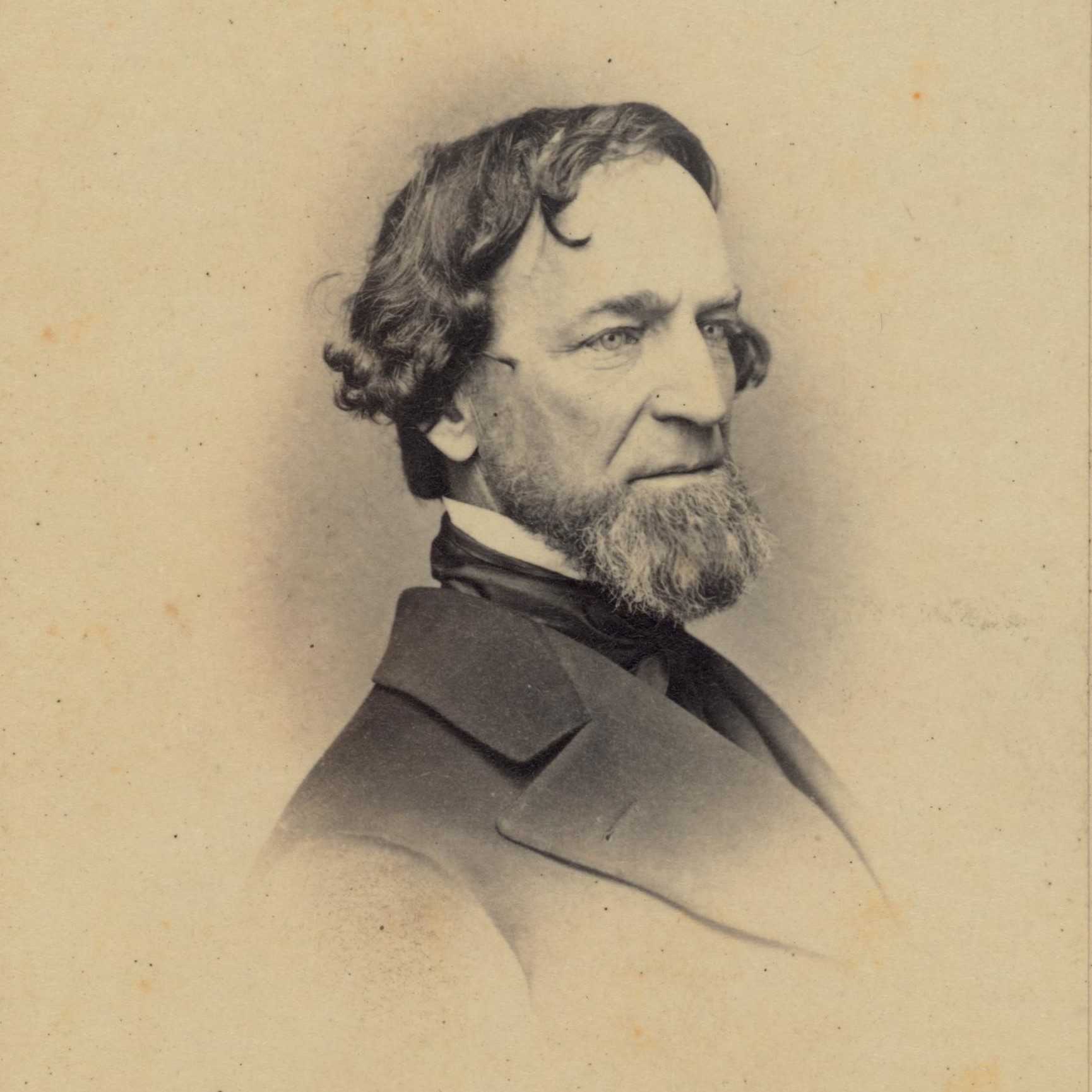Isaac Newton Arnold
Isaac Newton Arnold was born on November 30, 1815, in Hartwick, New York, to George Washington Arnold and Sophia Mason. He grew up and attended school in Hartwick, and by 1832, he was teaching school in Otsego County, New York. He was admitted to the New York bar in 1835 and briefly practiced law there. In 1836, however, he moved to Chicago, Illinois, and became law partners with Mahlon Ogden. Chicago was incorporated as a city the following year; voters elected Ogden mayor, and Arnold became city clerk. Arnold married Harriet Dorrance in the early 1840s, and they had at least five children: Catherine, born around 1844; Mary, born around 1848; Florence, born around 1855; Arthur, born around 1858; and Alice, born around 1862.
Arnold supported the Democratic Party, and he served three terms in the Illinois legislature during the 1840s. In 1848, however, he joined the Free Soil Party and attended its national convention in Buffalo, New York. He vehemently opposed the Fugitive Slave Law of 1850, and he joined the nascent Republican Party in 1856. He championed Abraham Lincoln’s candidacy in the presidential election of 1860, delivering speeches in favor of “Lincoln and Liberty.”
Illinois voters elected Arnold to Congress in 1860, and he served throughout the Civil War. He remained staunchly loyal to Lincoln. He also championed emancipation, introducing a bill to abolish slavery in the territories. In February 1864, he introduced a resolution calling for emancipation throughout the country, declaring that the Union could “have no permanent peace while slavery lives.” Arnold’s support for the draft, however, made him increasingly unpopular within his district, and he ultimately ended his bid for reelection in 1864. In response, Lincoln appointed him auditor of the Treasury Department.
Arnold opposed President Andrew Johnson, and by early 1866, he was calling for Johnson’s impeachment. Arnold resigned as auditor in September 1866 and returned home to Chicago. The following year, he published The History of Abraham Lincoln and the Overthrow of Slavery. He resumed his legal practice, and by 1870, he owned $150,000 of real estate and $30,000 of personal property. He published a biography of Benedict Arnold in 1880 and a second biography of Lincoln in 1884. He died in Chicago on April 24, 1884.
Image: Isaac Newton Arnold (courtesy Library of Congress)
DATABASE CONTENT
| (1531) | Arnold, Isaac Newton | 1815-11-30 | 1884-04-24 |
- Conflict Side: Union
- Role: Civilian
- Rank in:
- Rank out:
- Rank highest:
- Gender: Male
- Race: White
Documents - Records: 2
People - Records: 1
- (1531) Arnold, Isaac Newton is the [friend of] (1530) Lincoln, Abraham
Places - Records: 2
Groups - Records: 3
SOURCES
1860, 1870, and 1880 United States Federal Censuses, available from Ancestry.com; Cook County, Illinois, Death Index, 1878-1922, available from Ancestry.com; James A. Rawley, “Isaac Newton Arnold, Lincoln’s Friend and Biographer,” Journal of the Abraham Lincoln Association 19, no. 1 (Winter 1998), 39-56; “Isaac N. Arnold” Wikipedia Profile, available from https://en.wikipedia.org/wiki/Isaac_N._Arnold.





